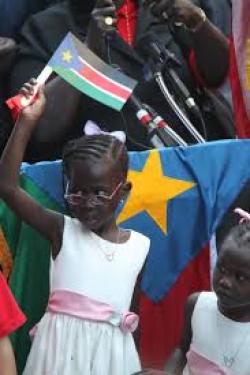By Joseph Daher
Women have played a key role in the protests in Sudan since December 2018, and continue to do so since the fall of the dictator al-Bashir in April 2019. This article is shared from the website of the Alliance of Middle Eastern and North African Socialists.
The level of women’s participation and their role in organizing daily struggles is unprecedented in the country’s history. The presence of women on the streets and on demonstrations is massive. They are also involved in workers’ organizations, including the Sudanese Professional Association and opposition parties within the Coalition of Forces for the Declaration of Freedom and Change (FDLC) that are leading negotiations with senior military officials.
Two feminist groups are also involved: the No to the Oppression of Women initiative and the Civil and Political Feminist Groups, whose influence is clearly visible in the coalition’s agenda. It is reflected, for example, in the presence, among the coalition’s main demands, of a demand for a 40% quota reserved for women in the legislative assembly and an end to all discrimination against women and equality.
We should remember that the regime, combining military and Islamic fundamentalism, has targeted women in particular in recent decades and since the beginning of the popular uprising. Under the Bashir regime, Sharia, or Islamic law, was the source of legislation leading to, inter alia, the flogging of women for ‘indecent behaviour’, prison sentences or fines for women accused of wearing ‘indecent clothing’ or ‘immoral behaviour’. Sudanese women’s rights NGOs report that more than 15,000 women were sentenced to flogging in 2016 in Sudan. The objective of the regime was to limit and control the presence of women in the public sphere by strengthening moral and criminal laws against them.
Since the beginning of the mobilizations in December, women have been specifically targeted by the security services, who have not hesitated to imprison, intimidate and sexually harass them. Detained demonstrators also had their hair completely shaved. Sexual repression and assault measures are a weapon intentionally used against women demonstrators to weaken mobilization.
Sudan has a long history of women’s activism, but the current revolutionary process goes beyond the women’s mobilizations of the past. The massive participation of women in the organization of popular struggles sheds light on the depth and radical nature of this popular uprising, which is far from having said its last word.
On 3 June 2019, the Sudanese regime launched a deadly crackdown on demonstrators who had been occupying the square in front of the headquarters of the Transitional Military Council for several weeks, killing more than 100 people and injuring hundreds.
In response, the Alliance for Freedom and Change (ALC), the spearhead of the protest movement, called for ‘a total and indefinite strike and civil disobedience’, ‘peaceful marches and processions in neighbourhoods, cities and villages’, and ‘the overthrow of the Military Council’.
June 24, 2019



